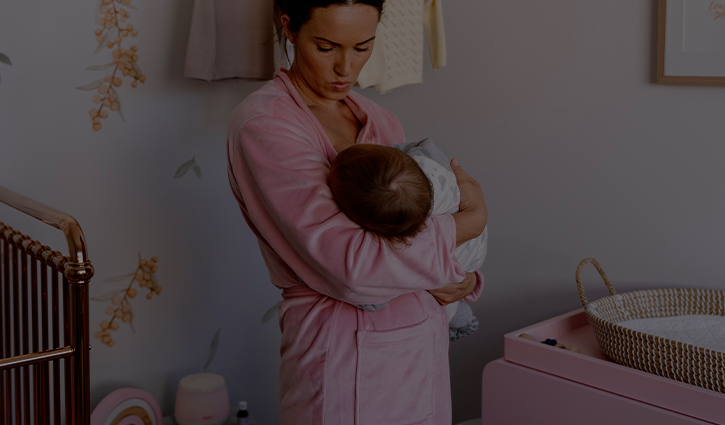If only there was some magic trick to getting amazing baby sleep! But, here’s the thing: every baby is unique, with individual temperaments, sleep needs, and continuous developmental changes.
Although sleep is fluid (in other words, it’s always changing) and is influenced by biological processes (meaning that it’s out of our control), there are actually several little things we can do to set the scene for sweet dreams.
To help your baby to drift off to sleep more easily and resettle through the night, it’s important that they feel loved, safe, secure, and calm. In order to do this, we have created this list of 5 simple ways to optimise babies sleep.
5 ways to optimise babies sleep
1. Follow their tired cues
- Rather than following some arbitrary one-size-fits-all sleep schedule, focus instead on following your baby’s lead. Each child has their own sleep needs. Some need more and some need less, which is normal and healthy.
- Trust that your baby will get the sleep they need if you pay attention to their tired cues more than the clock. Get to know your baby’s unique little signs that they’re sleepy, as they can differ greatly between children.
- Crying is a late tired sign, so to ensure a calm bedtime, it’s important to respond to their tired cues before their stress levels increase, as it only makes it harder for them to settle and to stay asleep.
2. Have a consistent bedtime routine
- You might not have considered this perspective, but for your baby, going to sleep is a separation from you. What a bedtime routine does is help to reassure and prepare them for this separation. It is a sequence of calming events that do not need to be rigid, complicated, or occur at exactly the same time every night
- A bedtime routine is key to promoting your baby’s sleep. It gives them all the cues to signal that it’s sleepy time. If you can mostly stick to a consistent ritual, your baby will learn what’s expected each night and for naps.
- It will look different for every family. You might like to start with a relaxing bath for your baby, followed by a milk feed, a bedtime story, and a snuggle to sleep. Find more tips and suggestions here.
3. Use soothing sounds
- Play your preferred sound, starting during the bedtime routine while you settle your bub to sleep. Keep it playing all night so that they feel reassured by the familiar sound when they wake.
- If your baby naps in a cot or bassinet, you can also play it during naps to reinforce the sound as a sleep cue.
- If you’re not sure what sound to use, you might like to go for pink noise, which is a frequency found in nature to keep them relaxed and calm. Alternatively, your baby might prefer a heartbeat sound to emulate the sounds of the womb, or waterfalls, or lullabies.
4. Look at light exposure
- During the day, play and feed near windows, get outdoors, and give your baby some naps in a fully-lit room or out and about. Sunshine and fresh air not only helps to increase melatonin production (the sleepy hormone), but is good for your mental and physical health.
- In the evenings, it’s a good idea to close the blinds an hour before bedtime during daylight savings.
- Reduce your baby’s exposure to blue lights (from TVs and devices) in the evenings too, as it can block melatonin production. Instead, choose red-based lighting in the bedroom. It encourages melatonin production, helping your little one to fall asleep quickly and resettle during the night after waking.
5. Scent is an excellent sleepy cue
- You might be surprised to learn that smell is the sense most closely linked to memory. Your baby feels extremely reassured when they’re close to you and they can smell you, so make the most of this when it comes to sleep.
- If you’re breastfeeding, put a few drops of breast milk on their sheet, or wear it in your top all day to get your scent on it.
- Use calming scents, such as lavender, in the bath as part of the bedtime routine. It’s not only another sleep cue, but it decreases the stress hormone (cortisol) in both the baby and parents.
- For babies over 3 months, you could use an aromatherapy humidifier that gently releases ultra fine mist into the air without heat, along with some calming pure essential oils, so your baby can enjoy its natural comfort and wellness benefits as well.

